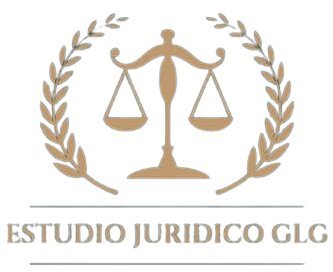Best Father's Rights Lawyers in Argentina
Share your needs with us, get contacted by law firms.
Free. Takes 2 min.
Free Guide to Hiring a Family Lawyer
Or refine your search by selecting a city:
List of the best lawyers in Argentina
About Father's Rights Law in Argentina
In Argentina, father's rights are an integral part of family law, which emphasizes equality between parents. Father's rights encompass various legal rights and responsibilities concerning their children, including custody, visitation, and child support. Argentine law promotes the idea that both parents should maintain an active role in their children's lives, backing the notion of shared parental responsibilities and the right of the child to maintain strong bonds with both parents. Nevertheless, achieving a balanced approach that respects the rights of both parents sometimes requires legal intervention.
Why You May Need a Lawyer
There are several situations where legal help might be necessary for fathers seeking to assert their rights in Argentina. If a father is facing obstacles in gaining custody or visitation rights, it might require legal intervention to ensure fair arrangements. Disputes over child support, parental alienation, or plans for relocation that affect a father's ability to maintain a relationship with his children also commonly require legal advice. Additionally, fathers may need legal support if there is a need to modify existing arrangements due to changes in circumstances, such as changes in employment or living situations.
Local Laws Overview
The Argentine Civil Code regulates matters related to father's rights. Key aspects relevant to father's rights include the principle of parental equality, the best interests of the child as a primary consideration, and provisions for joint custody. In Argentina, custody is generally a shared responsibility unless certain circumstances warrant otherwise. The law also stipulates a father's financial responsibilities in terms of child support, calculable based on the father's income and the child's needs. Moreover, the concept of “parental alienation” is treated seriously, with courts potentially intervening if one parent is obstructing the child's relationship with the other parent.
Frequently Asked Questions
1. What are my rights as a father in Argentina?
As a father, you have the right to seek joint custody, maintain contact with your children, and participate in important life decisions regarding their well-being. You are also obligated to provide financial support to your children.
2. How do Argentine courts determine custody arrangements?
Courts determine custody based on the best interests of the child, considering factors such as each parent's involvement in the child's life, the child's routine and stability, and any potential risks to the child.
3. Can I seek a change in custody arrangements?
Yes, you can request a change in custody, particularly if there's a significant change in circumstances or if the current arrangement is not in the child's best interest.
4. What can I do if my partner is trying to alienate me from my child?
You can seek legal intervention. The courts may mediate or order measures to restore your relationship with your child if parental alienation is evident.
5. How is child support calculated in Argentina?
Child support is determined by considering your income, the child's needs, and other relevant factors. The court aims to ensure fair support that maintains the child's standard of living.
6. Can I oppose my child's relocation?
If the relocation affects your ability to maintain a relationship with your child, you can legally contest it. Courts will consider the relocation's impact on the child and parental relationships.
7. How do visitation rights work if I do not have custody?
If you do not have custody, you typically have rights to visit your child regularly. The specifics should be agreed upon or ordered by a court if necessary.
8. Are there legal costs involved in asserting my rights?
Yes, pursuing legal rights can involve costs such as legal fees, court charges, and others. It is wise to discuss these with a lawyer upfront.
9. How long do custody disputes usually take?
The duration can vary based on the complexity of the case, the workload of the court, and both parties' willingness to cooperate. It is crucial to consult with a lawyer to understand the specific timelines.
10. Can a father voluntarily relinquish his parental rights?
Yes, a father can seek to voluntarily relinquish his parental rights, although this is a serious decision typically requiring court approval to ensure it's in the child's best interest.
Additional Resources
Several resources can offer support and information to fathers regarding their rights in Argentina. The Argentine Ministry of Justice provides information on legal procedures and assistance. Local non-governmental organizations (NGOs) dealing with family law can also offer guidance. Legal aid services may be available for those who qualify, offering free or low-cost legal assistance.
Next Steps
If you need legal assistance regarding father's rights, consider consulting with a specialized family law attorney in Argentina. Start by gathering all relevant documents and outlining your goals and concerns. Research potential lawyers by checking their experience in father's rights cases and seeking recommendations. Initial consultations can help you understand your rights and formulate a strategy. Remember, legal proceedings can be intricate, and having professional guidance is crucial to navigating the complexities of father's rights in Argentina effectively.
Lawzana helps you find the best lawyers and law firms in Argentina through a curated and pre-screened list of qualified legal professionals. Our platform offers rankings and detailed profiles of attorneys and law firms, allowing you to compare based on practice areas, including Father's Rights, experience, and client feedback.
Each profile includes a description of the firm's areas of practice, client reviews, team members and partners, year of establishment, spoken languages, office locations, contact information, social media presence, and any published articles or resources. Most firms on our platform speak English and are experienced in both local and international legal matters.
Get a quote from top-rated law firms in Argentina — quickly, securely, and without unnecessary hassle.
Disclaimer:
The information provided on this page is for general informational purposes only and does not constitute legal advice. While we strive to ensure the accuracy and relevance of the content, legal information may change over time, and interpretations of the law can vary. You should always consult with a qualified legal professional for advice specific to your situation.
We disclaim all liability for actions taken or not taken based on the content of this page. If you believe any information is incorrect or outdated, please contact us, and we will review and update it where appropriate.
Browse father's rights law firms by city in Argentina
Refine your search by selecting a city.















